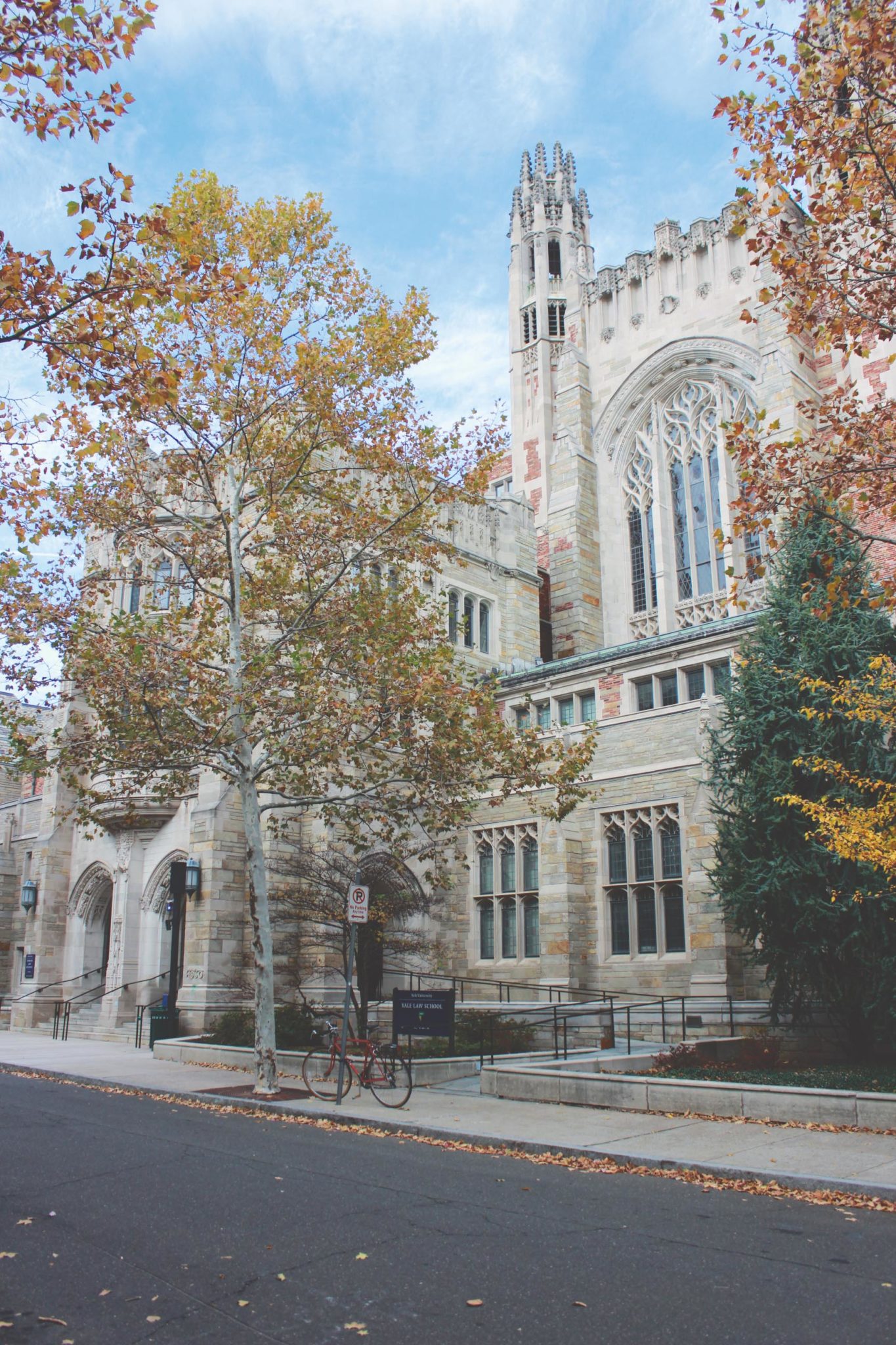
The legal battle against President Donald Trump’s executive order banning travel from six Muslim-majority countries will end next month when the case goes before the United States Supreme Court. As the monthslong struggle comes to a head, Yale — and a clinic at the Yale Law School — are once again weighing in on the debate.
The Rule of Law Clinic at the Law School submitted an amicus brief to the Supreme Court on Sept. 18 on behalf of 50 former U.S. government officials who have combatted terrorist threats in both Democratic and Republican administrations at the most senior level. The officials — including former Secretaries of State John Kerry ’66 and Madeleine Albright — argue that Trump’s executive order, lacking intelligence evidence and careful interagency review, was improperly signed in the name of the country’s national security interests. On the same day, Yale joined forces with 30 other U.S. colleges and universities in submitting a brief on the same Supreme Court case, which is set to begin on Oct. 9.
“Our government cannot enshroud rank discrimination within the veil of national security,” supervisor of the clinic and former Law School Dean Harold Koh told the News. “A process so lacking in national security judgment or evidence deserves no judicial deference.”
Phil Spector LAW ’00, who served as a senior advisor to Koh when Koh was the legal advisor at the State Department in the Obama administration, said the collaboration of national security officials with the clinic is a “natural fit.”
Spector said that from the very start of the clinic last semester, he and Koh knew that national security law, which he said is a relatively young field, would be an important area of focus of the clinic’s work in the Trump’s administration. Spector added that he and Koh used to work with many of the brief’s signatories in the Obama administration.
The submission of briefs marks the peak of Yale’s continuous engagement with the case. Yale was one of the group of institutions that submitted a brief to U.S. appeals court in March and then in April, while the Law School clinic had filed two briefs to the Supreme Court before yesterday and nearly 10 others to district and circuit courts.
What sets the clinic’s new brief apart from the earlier briefs the clinic filed in the litigation, according to Spector, is the crystallization up front of the proposition that national security arguments, which the administration is emphasizing more than ever in defense of the executive order, are just a pretext for the travel ban. He added that although their argument has focused on the lack of an appropriate national process throughout, the clinic has refined the brief over time to respond to the evolution of the case, including shifts in the government’s rationale for the ban, and the Supreme Court’s ruling earlier this summer to partially stay the lower courts’ injunction of the ban.
Zoe Weinberg LAW ’20, who has worked on this issue since the executive order came out in January, said this phase of the trial at the Supreme Court is unique because it revolves solely around the order’s merits.
Yet the outcome with the Supreme Court’s hearing is unclear, since the court has the option to declare the case out of their jurisdiction and not reach a verdict.
Hiroshi Motomura, a law professor at the UCLA School of Law and a nationally recognized expert on immigration, said although it is hard to predict how the Supreme Court will decide, the case gives the court an opportunity to limit the president’s power on immigration by using precedents where the court suggested some reviews of constitutional defects, while deferring to Congress and the executive branch.
“It’s possible that this is precisely the sort of case in which the court will say that the president has crossed the constitutional line — by depriving U.S. citizens and lawful permanent residents of family reunification on a discriminatory basis that was also motivated by religious animus,” Motomura told the News. “It’s also quite possible that instead the Court will strike down the [executive order] as inconsistent with congressional statutes — this would allow the court to avoid a constitutional ruling.”
Motomura said he agreed with Koh that although, as a principle, the government’s immigration decisions — especially with documented national security implications — deserve deference from the courts, Trump’s order “flunks” the test.
The last few months have offered students a good opportunity to hone their skills. Spector said the law students who have worked on the briefs were able to react under tight timelines, each one has left their indelible mark on the final product.
“To have one of the first pieces of litigation be a case that made its way to the Supreme Court is pretty remarkable and is something I will always remember,” Weinberg said.
Jingyi Cui | jingyi.cui@yale.edu | @jingyicuii







